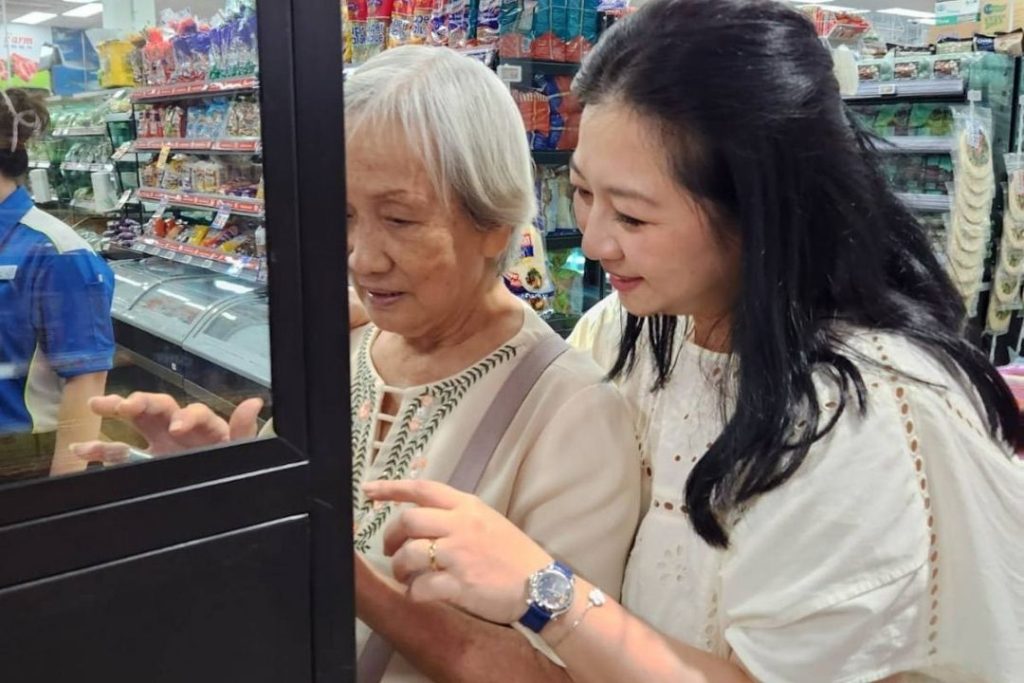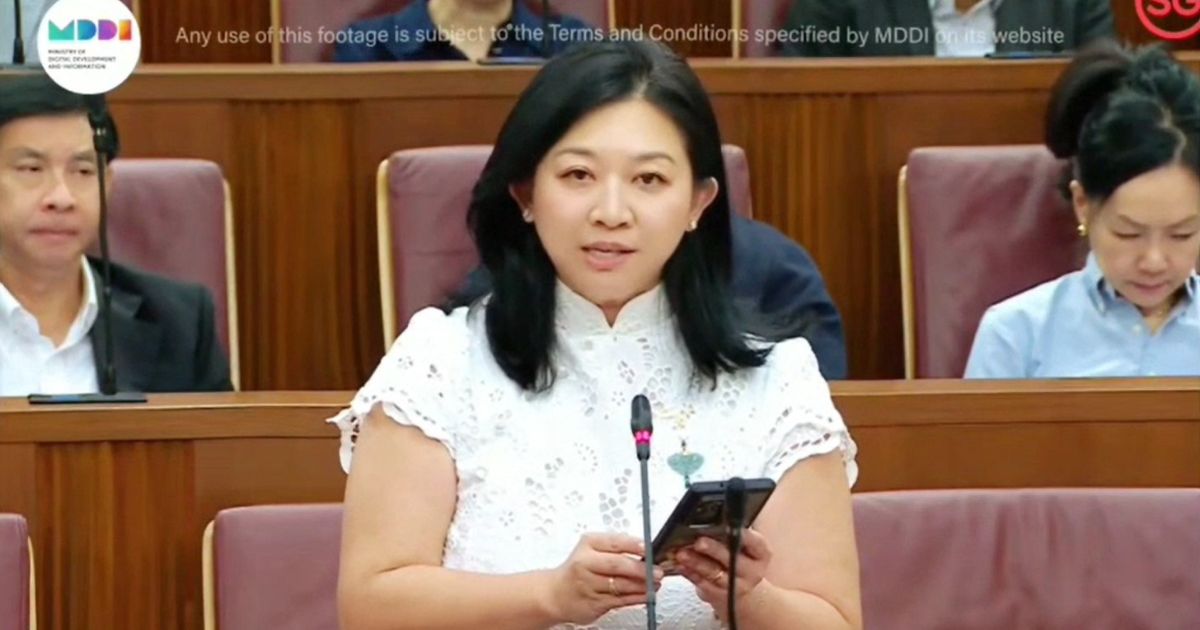Addressing the evolving needs of Singapore’s workforce is a key focus area for the Government Parliamentary Committee (GPC) for Manpower in the new parliamentary term, Chairperson Yeo Wan Ling said.
In an interview with Petir, the Punggol GRC Member of Parliament explained that the demographics, aspirations, and needs of Singapore’s workforce continue to evolve as the nation progresses. With professionals, managers, executives, and technicians (PMETs) forming most of the workforce, creating new job opportunities, especially in emerging technologies, has become crucial.
“We need to ensure our workforce upskill themselves so that technology not only leads to their growth, but it also creates different [career] pathways,” she said.
Referring to Prime Minister Lawrence Wong’s National Day Rally speech which touched on artificial intelligence (AI), Ms Yeo emphasised helping PMETs to adapt and transition between sectors as the economy transforms. She noted strong interest from workers in new industries, particularly cybersecurity.
The Punggol Digital District, a hub for cybersecurity and cyber technology, has become attractive to both young PMETs and mid-career professionals, said Ms Yeo.
“Cybersecurity is not something you would see 20 years ago,” she said. “New job descriptions, new job types. There needs to be more training and upskilling for people to embrace new areas in the workplace.”
The committee also focuses on supporting young graduates and senior workers.
“It’s about matching the expectations of what traditional companies can offer with the aspirations of our youths,” Ms Yeo explained, noting that many diploma holders aspire to pursue university education.
As Singapore transitions into a super-aged society, the committee will address the needs of active, ageing workers.
“We must ensure job security for our mature workers and protect them from workplace discrimination, harassment, and accidents,” she said.
Ms Yeo also emphasised supporting workers with caregiving responsibilities through flexible work arrangements.
“We need to provide avenues for people to stay in the workforce or rejoin the workforce after a caregiving hiatus,” she added.
Manpower GPC will continue to champion the needs of lower-wage workers

Ms Yeo said that the second area of focus is championing the needs of vulnerable workers, particularly lower-wage workers, to ensure no one is left behind.
“It is important for us to focus on company productivity through worker training and upskilling, while ensuring fair compensation,” she said. “We want to create more opportunities for lower-wage workers to advance or transition to other industries.”
The committee will also continue advocating for platform workers to secure “a decent and dignified livelihood,” Ms Yeo added.
Singapore has already made significant progress in this area. Parliament passed a landmark Bill in September last year that will provide better labor protection for cabbies, private-hire drivers, and freelance delivery workers who depend on online matching platforms for income. Starting January 1, 2025, these workers will be classified under a distinct legal category between employees and self-employed individuals.
“As platform operators’ business models continue to evolve, we must maintain protection for our drivers and riders,” Ms Yeo emphasised.
“While the bill took effect in January, implementation is still ongoing. We need to ensure CPF commitments and responsibilities are fulfilled, workers understand the implications, and platform operators fulfill their obligations.”
According to Ms Yeo, PMETs who lose their jobs can be considered vulnerable workers due to their specialised work nature. Therefore, it is important to explore additional ways to help these individuals re-enter the workforce through training and reskilling programmes.

Workplace safety is the GPC’s third priority, Ms Yeo said. The committee will focus on expanding worker protection, particularly for senior workers and those in hazardous work environments.
“With the evolution of the workplace, and a lot more people working from home, we need to adapt our focus to these new arrangements,” she explained.
Safety extends beyond physical aspects to include mental wellness, Ms Yeo pointed out. While there are laws in place to guard against discrimination and harassment, she stressed that additional measures are needed to help workers succeed in the digital age.
“Are people working longer or shorter hours? What are some of the gameplays that we need to look at when it comes to flexible work arrangements?” she questioned.
“Mental wellness is a big deal for platform workers and public transport workers. When you are behind the wheel all the time, it weighs on you mentally. How can companies better support these workers?”
She added that the GPC would also look into ensuring the safety of foreign workers, be it domestic workers or labourers, as they too deserve protection.
Beyond the GPC’s priorities, Ms Yeo, who serves as Assistant Secretary-General of National Trades Union Congress, pledged to continue to advocate for women, caregivers, workers in small and medium enterprises, and platform workers.
At Punggol Shore, her team plans to introduce job matching resources to support residents looking for jobs, a promise made during the general election this year.
Recognising that many residents are young families striving for upward mobility, she highlighted the importance of creating “better career pathways” for them.
She also outlined the challenges faced by the sandwiched generation – those in their forties and fifties who must balance caring for both their children and elderly parents.
“Many residents have aspirations to join new, interesting industries. How do we enable people to have a second spring in their careers?” she said.
“Some face circumstances, including caregiving responsibilities. For those who are retrenched, what support can we provide to help them return to the workplace? How can we make micro jobs and flexible work arrangements available to them?”
Yeo Wan Ling: Managing an ageing workforce is a key challenge for S’pore
Looking ahead, Ms Yeo outlined three key labour challenges facing Singapore. First is addressing the evolving aspirations of the workforce.
“People want meaningful careers, and work patterns are changing. More people are choosing self-employment and freelancing. How do we address the labour and fairness concerns of this group?” she asked.
While new technologies are being introduced in Singapore, she noted that they should enhance “our careers and workplace safety rather than disrupt our lives and livelihoods”. Lifelong learning and training would be crucial.
The second challenge involves managing an ageing workforce. This requires balancing safety considerations and preventing discrimination while leveraging the opportunities that experienced workers bring.
“It’s important to consider the aspirations of our senior workers. We need to look into job redesign.”
The third challenge relates to evolving work arrangements, particularly flexible work options. “How do we normalise these arrangements to ensure fair implementation in the workplace?” she asked.




